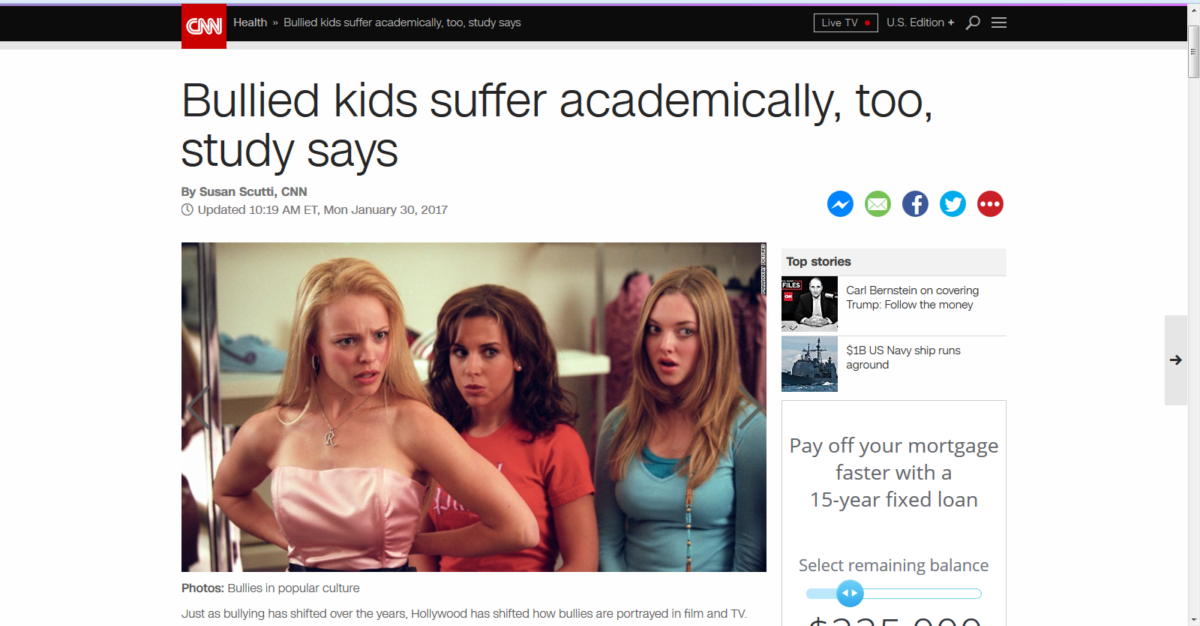
Bullying Academically Impacts the Lives of Students
Although this should surprise nobody, a recent study shows that bullying not only has an effect on a child emotionally, but academically as well.
Check out this recent article from CNN.com
(CNN) Bullying isn’t just about physical violence or emotional pain — it can impact kids’ educations, too.
Kids bullied their entire school career have declining test scores, a growing dislike of school and failing confidence in their abilities, say the authors of a study published Monday in the Journal of Educational Psychology.
Researchers tracked several hundred children in the United States from kindergarten through 12th grade, and found nearly a quarter experienced chronic bullying through their school years.
“The good news is that it goes down. The longer kids stay in school, the less likely it is that they will be victimized,” said Gary W. Ladd, professor of psychology at Arizona State University, who led the study.
Once the kids start high school, the aggression tends to taper off.
Ladd wondered about the bullied kids who said “they didn’t like school and didn’t want to go there.”
“The majority of research done on bullying and victimization addresses children’s psychological and health adjustment,” Ladd said.
But when it comes to understanding their school achievement, there wasn’t much out there, leading him and his colleagues to investigate.
Vulnerability to victimization
In 1992, Ladd and his colleagues enlisted 383 kindergarteners — 190 boys, 193 girls — into their study. The participants attended various public schools, mostly in Illinois. The team then frequently assessed each child’s feelings of victimization, enthusiasm for school, academic esteem and performance via teacher evaluations and standardized test scores.
Among the assessments were annual surveys in which the children described their experiences with bullying, addressing whether they had been hit, picked on, or verbally abused by other kids. Frequency was measured on a scale of one, meaning “almost never,” to five, meaning “almost always.” The study is part of a larger investigation of children’s social, psychological and academic adjustment funded by the National Institutes of Health.
You can read the rest of the article here.

